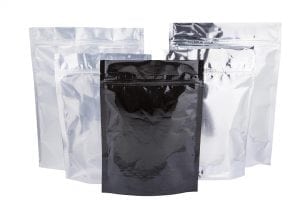 Projects advancing recovery of difficult-to-recycle plastics will receive funding through a federal initiative to support U.S. manufacturing and energy efficiency.
Projects advancing recovery of difficult-to-recycle plastics will receive funding through a federal initiative to support U.S. manufacturing and energy efficiency.
The REMADE (Reducing Embodied-Energy and Decreasing Emissions) Institute announced July 11 its first round of projects to receive funding. The REMADE Institute launched in early 2017 and has been working through the selection process since last summer.
REMADE is funded partially through the U.S. Department of Energy, and its goal has been to develop technologies reducing energy usage and greenhouse gas emissions in manufacturing by improving recycling, remanufacturing and reuse.
A handful of projects selected during the first funding round are related to plastics recycling. Plastics Recycling Update queried REMADE for more information and compiled the following roundup of three plastics-focused projects.
Targeting film and flexible packaging: A project by the American Chemistry Council (ACC), Idaho National Lab and Resource Recycling Systems (RRS) seeks to advance recovery of flexible packaging and plastic film. Titled “Determining Material, Environmental, and Economic Efficiency of Sorting and Recycling Mixed Flexible Packaging and Plastic Wrap,” the project will examine barriers along every stage of the recovery process. Its goal is to gather data on the efficacy of new types of sortation equipment, the impact that equipment has on quality of other commodities processed in the materials recovery facility (MRF), the market potential for recovered film and flexible packaging, and more. ACC and RRS are already working on a project called Materials Recovery for the Future (MRFF), which involves optimizing MRFs’ ability to sort flexible packaging.
Breaking down barriers to multi-layer film recovery: The project will examine the primary challenges for recycling multi-layer film, which currently is not recycled in large volumes, according to REMADE. The recovery challenges include effectively separating low bulk density film using existing processing equipment and sorting laminated films into separate streams. They also include a lack of markets for the end products, which are “heterogenous blends with altered properties.” The project, titled “Scalable High Shear Catalyzed Depolymerization of Multilayer Plastic Packaging,” seeks to address the issue that there is a lack of cost-effective and energy-efficient conversion technologies for these materials. The project is a collaboration between the ACC, Michigan State University, National Renewable Energy Laboratory, Unilever and the University of Massachusetts-Lowell.
Bring circular economy into systems analysis: A third plastics recycling-related project seeks to incorporate circular economy concepts into other analysis tools. According to the REMADE project description, “Few conceptual models exist for the evolving plastics circular economy. Attempts to envision/assess impacts of a future plastics circular economy are lacking.” This project, titled “Systems Analysis for PET and Olefin Polymers in a Global Circular Economy,” will be carried out by the ACC, Idaho National Lab and Michigan Technological University.
Photo credit: Jesus Cervantes/Shutterstock
More stories about research
- RIT researchers develop AI-based textile recycling system
- Researchers: Effective plastic treaty requires production cuts
- Research, programs improve film recycling access



